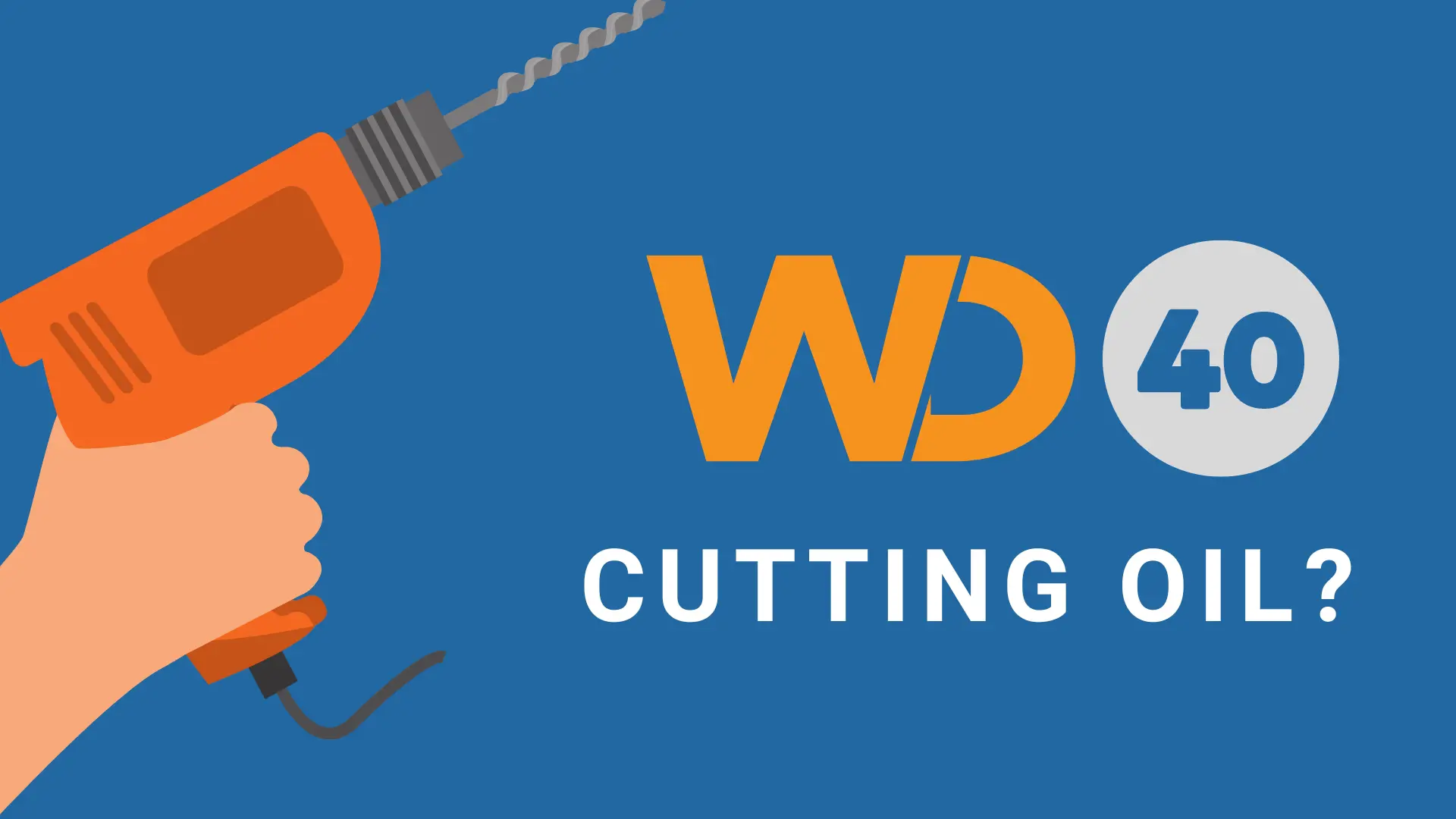Whether you are drilling, milling, or doing lathe operations. You always you are always concerned with the final finish of your product. There are a lot of factors that may contribute to the final finish of your workpiece. These include cutting speed, cutting tool, feed rate, the material being used, and finally the most important one your cutting oil.
When I started drilling at my lab my drill always overheats. And I was wondering which cutting oil should I use for a better finish of the workpiece. I have used a lot of different lubricants out of my curiosity and I am here to share my results with you today.
Can We Use WD40 as Cutting Oil?
Can We Use WD40 as Cutting Oil? Yes, you can use WD40 Specialist as your daily cutting oil but for soft materials (aluminum and its alloys, copper, and brass) and for your least precision jobs. But for harder ones such as SS and MS this cutting oil will really make your job tough.
What to Look for in a Cutting Oil
When you are purchasing the cutting oil for your job. Here are a few factors that you should consider before buying the one that fulfills your desired job.
1- Lubricity:
Lubricity measures the extent of lubrication a cutting oil will provide when used during the cutting operation. The more lubricity the easier will be the machinability, less heat generated, lesser pitting, no deformation, and a better surface finish obtained.
2- Cooling Ability:
The major reason for use of lubrication is the cooling during the cutting operations. The lubricant should have good heat conduction and it must dissipate heat quickly generated during the cutting process.
3- Inertness:
The lubricant we are using should be inert so that it does react to the material being used. This is technically so underrated factor and you will mostly see black or dull surfaces on the machined workpieces which is a symptom that cutting oil is reacting to the material. So, no cutting oil is best or bad it solely depends upon your application and the material being cut.
4- Environment Friendly:
The cutting oil use should be environment friendly and there must be no hazardous materials present in the cutting oil. As they may eventually go into the waste they are more harmful to nature and if dumped in water they may cause implications.
5- Long Life:
The oil should have a longer life and should be stable enough that it may last longer when used for machining. Intact appearance and consistent smell after constant indicators that a cutting oil is of better quality.
6- Cost Effective:
Last but very importantly the cutting oil should be cost-effective and well-selected to the level of your application. The more precise and delicate work you are doing it is better recommended to use high-quality cutting oils for precision finishes.
WD40 Specialist as Cutting Oil
The Specialist Oil by WD40 is especially for use as a cutting oil on all sorts of materials (company claimed). I have used it and tested it for a variety of materials. But tbh it works best for softer materials such as aluminum and copper.
For stainless steel, my drill started to overhead, and sometimes it even stalls and makes a foul smell. This is a clear indication that this cutting oil is not suitable for harder materials and it even does not have better heat dissipation ability. The same happened to MS and CI where my drill heated to an extent that it is even difficult to touch.
WD40 for Cutting
(Results on Different Materials)
| Metals | Performance of WD40 as Cutting Oil |
|---|---|
| Aluminum | Good |
| Copper | Good |
| Brass | Good |
| Stainless Steel | Poor |
| Mild Steel | Poor |
| Cast Iron | Poor |
Best Cutting Oil for Professional Needs
For professional cutting needs, I would go for Tapmatic, Tricut, Anchor Lube, and Rapid Tap but I find the Tapmatic is best among these. Especially when I am working on precision tasks I always try to use the Tapmatic cutting oil and stay away from WD40 or other low-end products as they are gonna get things dirty for you.
Cutting Oil vs WD40
WD40 Speciality is also a low-mid-end cutting oil that is also on the economical side. But for the higher precision jobs, and harder materials professional cutting oils I have listed above should be preferred.
Cutting Oil Alternatives
Get yourself a bottle of mustard oil, or use bacon grease. Tip: I mostly use tap water for my diy drilling tasks where neither precision nor surface finish is critical. Tip water helps to keep my drill bit cool and makes a lubrication film which will ease the cutting process.

